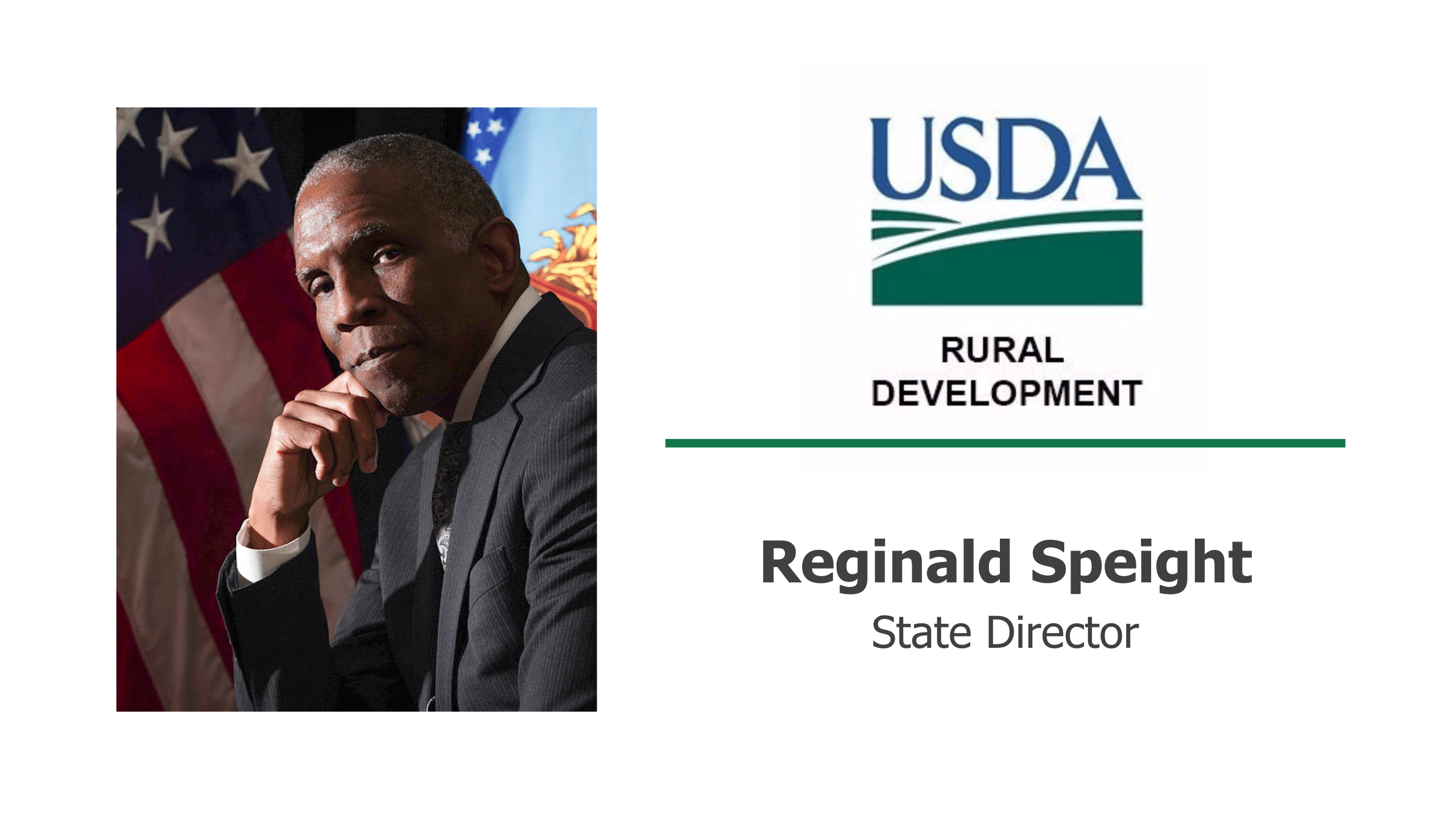
April 25, 2024
Recently, Golden LEAF President, Chief Executive Officer Scott T. Hamilton sat down with USDA-Rural Development State Director Reginald Speight via Zoom and recorded an episode of Critical Conversations. In this series, Scott talks with professionals about economic development issues affecting the state.
The U.S. Department of Agriculture-Rural Development (or USDA-Rural Development) offers loans, grants and loan guarantees to help create jobs and support economic development and essential services such as housing; health care; first responder services and equipment; and water, electric and communications infrastructure. USDA-Rural Development has over 70 programs to support rural North Carolinians.
Speight was appointed by the President as the USDA-Rural Development North Carolina State Director in October 2021.
Speight has served in numerous senior level management roles in North Carolina, including more than 20 years of nonprofit management experience, 15 of those years as Chief Executive Officer. He most recently served approximately nine years in various leadership roles in the Office of Congressman G. K. Butterfield, in North Carolina’s first Congressional District. Speight’s career has been dedicated to the promotion of equity, inclusion, and economic mobility on behalf of the residents of eastern North Carolina. He has served on numerous boards including local, Governor appointed State, and national.
Speight shared that the programs available in USDA-Rural Development include funding for training entities for workforce preparedness, funding to build community facilities such as agriculture facilities, funding for rural utility services including water, wastewater and broadband, and funding for housing. USDA-Rural Development also provides loan guarantees for small businesses.
In April 2024, Randolph County was awarded funding by the Golden LEAF Board of Directors through the Community-Based Grants Initiative for equipment to support training for farmers and to be leased to farmers from the new Agricultural Center that is under construction. The building for the project was funded by USDA-Rural Development. Speight shared that most of the USDA-Rural Development funding programs require some level of non-federal funding, around 20%-25%. He added that many times organizations reach out to philanthropic entities to fill this funding gap. Each project funded, Speight added, has heavy reporting requirements.
Learn more about USDA-Rural Development and its programs by clicking here.